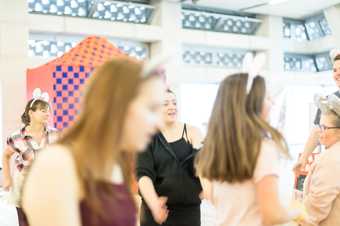Exchange ideas, philosophies and common concerns in relation to the theme of ‘Political Movement(s)’.
- How can activist art relate to and support contemporary movements of social transformation?
- What is the purpose of activist art in the context of austerity?
- How might activist art challenge issues of marginalisation, exploitation, privilege and exclusion?
- What forms of artistic practice might be best suited to the politics of radical social transformation?
You will have an opportunity to make a provocation or invitation which encourage responses from people engaging with Tate Exchange over the next year.
This workshop is organised by the Activism Research Network of Canterbury Christ Church University.
Activism Research Network is part of the Politics and International Relations programme at Canterbury Christ Church University (CCCU). Through researching and engaging with activists and practitioners and community groups, we are concerned with a number of key questions, including: ‘What makes for successful political activism’? ‘How can activism both inform and transform the political agenda?’ How can academic research support – in a non-hierarchical fashion – movements of progressive social transformation?
Throughout its development, our project has related to the work of a wide arrange of Tate artists and collections. Our 2017-18 project (‘What Are You Looking At?’) referenced directly the theme of abject art. Our 2018-19 work has particular alignments with the community driven practices of self-described artivist Tania Bruguera. The focus of her work with the Tate Neighbours, as part of the Turbine Hall commission, on social practice art and non-hierarchical forms of artistic production have had a direct impact on our research and our plans for this year’s Tate Exchange project.

